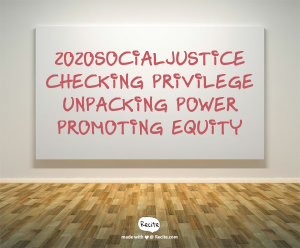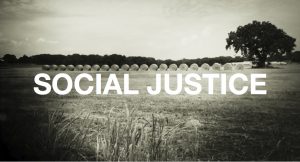About
Social justice is for everyone (previously 2020socialjustice)
This website (and associated Facebook page and Twitter account) came about when I realised that most of the work I have done as a psychologist (now retired) and most of the issues I care most about involve social justice.
I originally called the project 2020socialjustice because the cherished ideals are a bit like 20-20 hindsight, representing a state of perfection that is unlikely to be achieved and yet is still worth working towards.
In November, 2012, when I first pushed the starter button on the website, 2020 was far enough in the future for substantial change, and near enough for realistic commitment.
In January 2021, I renamed the site for the new decade as ‘Social justice is for everyone’.
So, welcome to this website on social justice where you can read my blog, find out about my books, check out my CV and publications, and contact me to make comments, provide feedback, and ask questions.

About Joan Beckwith
I grew up in Melbourne during the 1950s and 60s in an Irish Catholic family that was typical of its time.
We were not allowed to make friends with Protestants, and all our doctors, dentists and other such had to be Catholic. Our dentist, for example, was not very good with teeth, but rated highly as a pillar of the Church, and was inevitably also ‘he’. University was not for girls.
When I left school, I went to Domestic Arts Teachers’ College,  where I learnt to keep skirting boards really clean by scrubbing them with a toothbrush. I knew nothing of other cultures, White Australia, Aboriginal history, or the Stolen Generations even though the policies were in practice during my growing years.
where I learnt to keep skirting boards really clean by scrubbing them with a toothbrush. I knew nothing of other cultures, White Australia, Aboriginal history, or the Stolen Generations even though the policies were in practice during my growing years.
No child I knew would have reported abuse, particularly by clergy, because we knew, without needing to be told, that the retribution for doing so would be swift and certain. I don’t know if any of my schoolmates were homosexual because it is not possible to have conversations about taboos that have no language.
In retrospect, it was not just my family, or just Catholics, but Australian society as a whole that was unenlightened about social justice. That makes the circumstances of my childhood more understandable, but not more palatable.
Thanks to Gough Whitlam (RIP 21 Oct, 2014) who, as Prime Minister, abolished university fees, I was able to go to university in the mid 1970s and discover ways of thinking beyond the limits of my childhood. My most important learning was in psychology and women’s studies, and I became registered as a psychologist in the mid 1980s after completing my PhD.
Feminism and psychology have an uneasy relationship, and the tension has shaped the way I  have worked as an academic, a counsellor in a university, a practitioner in community-based mental health and drug services, and with people seeking asylum in unwelcoming times. The day one of my feminist mentors introduced me to a colleague as a ‘feminist psychologist’ was a landmark, even though many mainstream psychologists (as well as many feminists) would see such a description as an oxymoron.
have worked as an academic, a counsellor in a university, a practitioner in community-based mental health and drug services, and with people seeking asylum in unwelcoming times. The day one of my feminist mentors introduced me to a colleague as a ‘feminist psychologist’ was a landmark, even though many mainstream psychologists (as well as many feminists) would see such a description as an oxymoron.
Feminist theory started me thinking about relationships of power wherever they occur, given that gender intersects with other key dimensions (including race, class, and sexuality, for example) which in turn intersect with each other. Relationships of power underlie issues of social justice so that these, in turn, also form an intersecting web.
Social justice has provided the unifying theme across the personal, professional, and political domains of my life. I have worked towards it in theory and practice with students, clients, and colleagues, as well as closer to home; I have marched and rallied, signed petitions and collected signatures, lobbied, produced papers and given presentations.
I have also done at least my fair share of reinventing the wheel, tilting at windmills, and generally losing the plot. There have been times of low activity when family has taken precedence, and other times when I have needed to regroup. I have found, however, that the drive towards social justice has its own unpredictable pathway, so who knows what is yet to come.
Retirement has been partly about exploring forms of writing other than academic, and you can find out about my blog here and my books here. Further details of my curriculum vitae and academic publication list are available here, and you can send me a message here.
I hope to hear from you. In the meantime, best Themis blessings,
Joan Beckwith, PhD.



